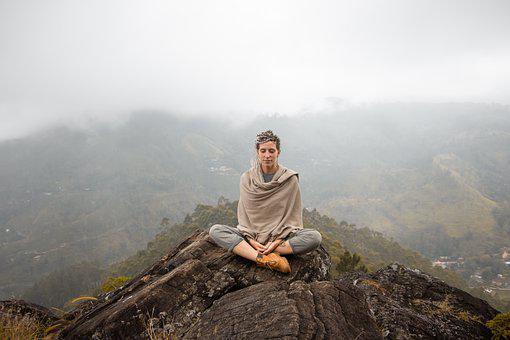What does it mean that the new Constitution turned Chile into a multinational and ecological State? DW spoke, in Europe, with an activist of Mapuche origin and with the legal advisor of a conventional Kawésqar.
“On the maternal side I am Mapuche. For us it is very important to recognize that the State can act to protect the cultural heritage, worldview, spirituality and language of each of the cultures that have inhabited Chile since time immemorial.“, tells DW Marcelo Espinoza. This doctor and researcher in the chemical industry, without being a member of any political party, works for the “Approval” because of the conviction that it is the option in accordance with the current needs of the country.
“With the current Constitution, approved during the dictatorship, any project to, for example, better disseminate the Mapuche language in schools could be branded as unconstitutional, since until now the State is one,” he explains. In his argument, he affirms that the concept of a plurinational State is something everyday in Belgium: “three languages, three histories, three cultures and they are stronger together”.
In the case of Chile, there are ten already recognized indigenous peoples. If in 1570 they were 96.8% of the population, by 1800 they were 58.3%. According to the 2017 census, they represent 12.8% of the Chilean population. Nevertheless, “The previous Constitutions of Chile never mentioned the word indigenous, not even in a subsection”Paulette Baeriswyl, a jurist, born in Punta Arenas, who advised the Kawésqar representative to the constituent assembly, tells DW from Zurich.
“Although, since 1993, there is 19,253, the Indigenous Law, which recognizes them and embraces a territorial restitution procedure, what is happening at the constitutional level is unprecedented. Previous Constitutions have had the intention of homogenizing the Chilean population, looking rather towards miscegenation with European immigration, assimilating indigenous peoples, ignoring their history and culture”, adds Baeriswyl. “Many were ashamed to have an indigenous surname,” she adds.
It should be remembered that Chile is a signatory to international agreements that recognize indigenous peoples and their right to consultation and prior consent (ILO 169) of what happens in their ancestral territories,
“That this is anchored in the Constitution ensures a right that goes beyond the laws. In the constitution project, ten years are foreseen to generate frameworks for the cadastre and the territorial restitution”, Baeriswyl points out.
The task is not easy, say specialists. Although there are ancient titles, there are also non-ancestral populations that arrived in these territories decades or even centuries ago.
Be that as it may, cultural pluralism leads to legal pluralism; This is an issue that has also caused controversy in Chilean society.
Starting from the concept of regions, far from the current centralism of Chile, “What is sought is that when there are indigenous people involved in a civil or criminal conflict, whose people have a solution to that conflict, the judge must take it into consideration. Within the framework of fundamental rights anchored in the constitution and internationally”points out the jurist Baeriswyl.
To counteract fears, nearby experiences, such as that of Bolivia with its legal pluralism, in his opinion, do not set a precedent in Chile. The country that would rather look at itself in European mirrors.
In this sense, from the Swiss experience, Baeriswyl ensures that the laws change from one canton to another, distant 40 kilometers, has not prevented, for centuries, the peaceful coexistence of the country.
In any case, “Chile has been unitary, following a French model and a very static Civil Code; Now recognizing different norms for indigenous peoples is a big shake in society, ”she warns.
It is also problematic, in the public opinion of the country, that the text of the new Constitution recognizes the indigenous peoples’ right to be consulted on projects that affect their territory. It is nothing more than prior consultation and consent, anchored in international agreements signed by Chile.
“We have examples of very small territories, of profound importance that have been devastated to build a dam or to exploit a mine,” says Espinoza with an eye toward the right to consultation, not the “veto” that opponents speak of. the new Constitution.
“This is the recognition of the right to land, territory and associated resources understood in a broad sense,” explains Baeriswyl. “The Mapuche people, associated with the land, are not the same as the Yagán, the Rapanui or the Chango, linked to the sea. Nor is it the same to speak of the small artisanal miner, of the pirquinero, than of the extraction of resources in the subsoil with high technology”, adds the jurist, foreseeing a lot of legislative work to come.
In any case, “one of the most innovative aspects of this Constitution is the protection of nature; to that extent, the indigenous peoples who have led an immense struggle on the continent in their defense, never to their detriment, acquire a prominent role”, affirms Baeriswyl.
On the other hand, although the Constitution is nothing more than the marking of the field of rules of the game yet to be defined, “the new constitutional text is a sign that we have gone from being proud only of the grandmother of Spain to not feeling ashamed but to embrace the grandmother of the mountain range, of the interior of Temuco or of an island of Chiloè”, concludes Espinoza.
Constituent advisor: proposal for indigenous laws is more similar to Switzerland than to Bolivia

